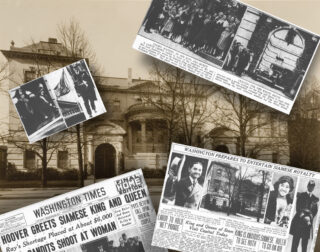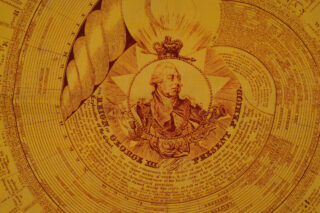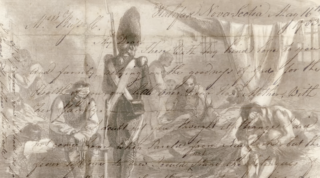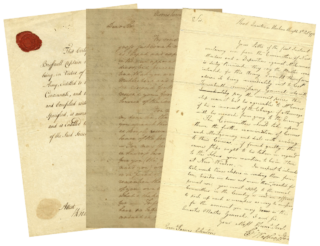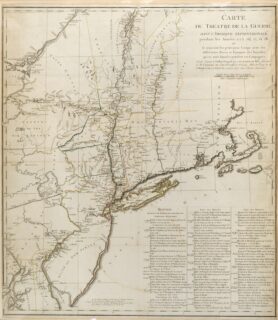Supporting scholarship and promoting popular understanding of the American Revolution is central to the work of the American Revolution Institute. The Institute welcomes distinguished scholars and authors to share their insights and discuss their latest research with the public at Anderson House through lectures, author's talks and panel discussions. The Institute also hosts a variety of other historical programs throughout the year, including our Lunch Bite object talks, battlefield tours, special Anderson House tour programs and other events. Many of the events we offer are free.

October 2023
Lunch Bite – Visit of the King and Queen of Siam to Anderson House in 1931
Join Director of Marketing and Communications Glenn Hennessey for a discussion of the 1931 visit to Anderson House by the king and queen of Siam (now Thailand) and the ephemera that documents it. From April 29 to May 1, the royal couple occupied the house—on loan from Larz and Isabel Anderson, who were out of town—for the Washington, D.C., portion of their trip to the United States. The royals used the mansion as their residence in the nation’s capital, entertaining…
Find out more »November 2023
Lunch Bite – A Handkerchief Commemorating the Reign of King George III
Museum Collections and Operations Manager Paul Newman discusses a handkerchief commemorating the reign of British monarch King George III, made ca. 1812. The large printed handkerchief chronicles contemporary events in a lavishly decorated manner and includes several portraits of notable British figures from the period. This Lunch Bite will focus on the various depictions on the printed textile, with a particular focus on how the American Revolution is referred to within the artifact and contextualized in the broader scope of…
Find out more »December 2023
Lunch Bite – A Collections of Letters Written from Captivity by William Russell
Historical Programs Manager Andrew Outten discusses a collection of letters written from captivity by William Russell, an American soldier and privateer who was imprisoned twice during the Revolution. Following his initial capture at sea, Russell was first held prisoner at Mill Prison in England before being released. Shortly after, he was recaptured and incarcerated on the infamous prison ship Jersey in New York Harbor. After his final release in March 1783, and desperate to repay debts and provide for his family,…
Find out more »February 2024
Lunch Bite — Three George Washington Manuscripts
Research Services Librarian Rachel Nellis discusses three manuscripts written by Gen. George Washington during the American Revolution. The manuscripts, recently donated to the Institute as part of the George Miller Chester Jr. (Society of the Cincinnati in the State of Connecticut) Collection of Historic General Washington Documents, include two wartime letters written by Washington from Harlem Heights in 1776 and Morristown in 1777. The third manuscript, issued to a French officer in 1783, is one of the earliest examples of…
Find out more »April 2024
Lunch Bite — A map created by Lafayette’s aide-de-camp for King Louis XVI
In 1777, French army officer Michel Capitaine du Chesnoy arrived in Charleston, South Carolina, with the marquis de Lafayette. During the American Revolution, Capitaine du Chesnoy served with Lafayette as both his aide-de-camp and mapmaker, producing several important plans of key engagements. In addition to his maps serving as vital tools for French officers who were strangers to the geography of the United States, Capitaine du Chesnoy’s maps also became an important propaganda tool. Join the Institute’s historical programs manager,…
Find out more »